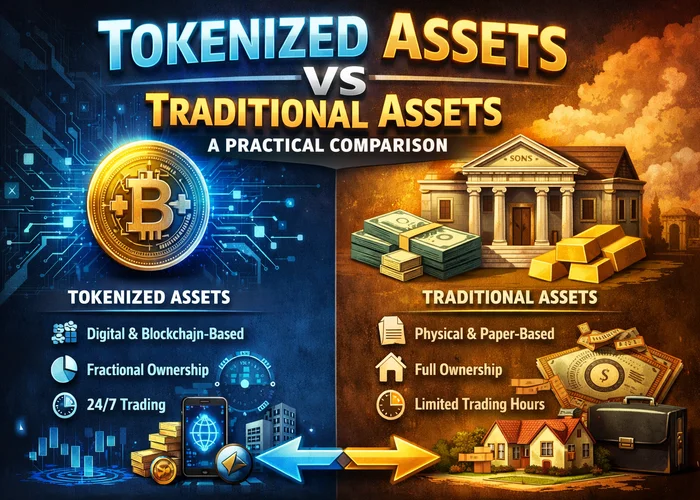What Is A Cryptocurrency Wallet?
A cryptocurrency wallet refers to a software application or physical device that allows individuals to securely store, manage, and engage with their digital assets. It serves as a digital repository for private keys, enabling users to access and control their cryptocurrencies. Cryptocurrency wallet development focuses on creating these platforms or tools that facilitate key generation, address management, transaction creation and signing, and balance monitoring. Through cryptocurrency wallet development, users gain the ability to safely store and interact with their digital currencies, ensuring secure and convenient management of their crypto holdings. Create your own cryptocurrency wallet to secure your investments and take complete control of your digital assets.
What Are The Different Kinds Of Cryptocurrency Wallets?
There are several types of cryptocurrency available, each with its own unique features and characteristics. Here are several prevalent types of cryptocurrency wallets:
- Software Wallets: These wallets are software applications that you install on your computer or mobile device. They can be further classified into:
- Desktop Wallets: Installed on your computer, they provide full control over your private keys and offer a higher level of security compared to mobile wallets.
- Mobile Wallets: These wallets run on mobile devices and offer convenience and portability. They are often user-friendly and suitable for day-to-day transactions.
- Web Wallets: Web-based wallets operate through a browser interface, allowing you to access your funds from anywhere. They are generally less secure than other types of wallets as they rely on the security of the hosting platform.
- Hardware Wallets: These wallets store your private keys on a physical device, typically a USB-like device. They offer enhanced security by keeping your keys offline and consider one of the most secure ways to store cryptocurrencies.
- Paper Wallets: A paper wallet is a physical printout of your public and private keys. It is generated offline and is typically stored in a secure location. Paper wallets are highly secure as they are not vulnerable to online attacks, but they require careful handling to protect against loss or damage.
- Custodial Wallets: Custodial wallets are provided by third-party services such as exchanges or cryptocurrency platforms. They hold and manage your private keys on your behalf. While convenient, custodial wallets transfer control of your funds to the service provider, which introduces some level of counterparty risk.
It’s important to consider factors like security, ease of use, and your specific needs when you create your own cryptocurrency wallet.
How Does A Cryptocurrency Wallet Work?
While there are different types of wallets available, the underlying principles of how they work remain similar. Here is a basic overview of the functioning of a cryptocurrency wallet:
Step : 1 Key Generation:
Cryptocurrency wallet development begins with the generation of a pair of cryptographic keys—a public key and a private key. The public key is used to receive funds, while the private key is required to access and spend the funds. This key generation process is an integral part of cryptocurrency wallet development.
Step : 2 Address Generation:
As part of cryptocurrency wallet development, the wallet software generates a unique address (a string of characters) from the public key. This address represents the destination for receiving funds. The address acts as a pseudonymous identifier for the wallet.
Step : 3 Wallet Storage:
Cryptocurrency wallet development ensures the secure storage of the private key, which is typically encrypted or kept in a secure location. The wallet software is responsible for securely managing and safeguarding this key. It’s crucial to keep the private key safe and never share it with anyone, as it provides full control over the funds.
Step : 4 Transaction Creation And Signing:
When a user intends to send cryptocurrency from their wallet, the wallet software, specifically designed for cryptocurrency wallets, generates a transaction. This transaction includes the recipient’s address, the transaction amount, and other vital details necessary for the transfer. The transaction is then digitally signed using the private key to verify the authenticity of the transaction and to prove ownership of the funds.
Step : 5 Broadcasting The Transaction:
The signed transaction, created using cryptocurrency wallet development techniques, is broadcasted to the cryptocurrency network through nodes or blockchain explorers. The nodes validate the transaction to ensure its authenticity, verifying that the sender possesses adequate funds and that the transaction complies with the network’s rules and protocols.
Step : 6 Confirmation And Inclusion In The Blockchain:
Miners or validators in the network, as part of cryptocurrency wallet development, collect and confirm transactions. They bundle verified transactions into blocks and add them to the blockchain through a consensus mechanism (such as Proof-of-Work or Proof-of-Stake). Once we include the transaction in a block, it becomes a permanent part of the blockchain’s history.
Step : 7 Balance And Transaction History:
Wallet software, developed for cryptocurrency wallets, keeps track of the user’s cryptocurrency balances by scanning the blockchain. It can retrieve the balance associated with the public key and display the transaction history. Further allowing users to monitor their funds and previous transactions.
It’s important to note that cryptocurrency wallet development focuses on creating platforms and tools. In addition that provide secure storage and management of cryptocurrencies. Wallets are essential for individuals to interact with and utilize their digital assets effectively.
Shamlatech: Your Trusted Partner For Cryptocurrency Wallet Development
ShamlaTech is a leading provider of cryptocurrency wallet development solutions. We offer comprehensive services to assist you to create your own cryptocurrency. With our expertise in blockchain technology and secure coding practices. Moreover we ensure the development of robust and reliable wallets for storing and managing digital assets. Our team possesses the expertise and knowledge to provide assistance and guidance on how to create a cryptocurrency. Further ensuring that your requirements are met while adhering to industry best practices for cryptocurrency wallet development.
If you are looking for how to create a crypto wallet, we will help you develop cryptocurrency wallets. Moreover that are user-friendly, feature-rich, and compatible with various platforms. Whether it’s creating a new wallet from scratch or customizing an existing one. In addition we offer end-to-end solutions to meet the unique requirements of clients, ensuring the highest level of security and functionality.








